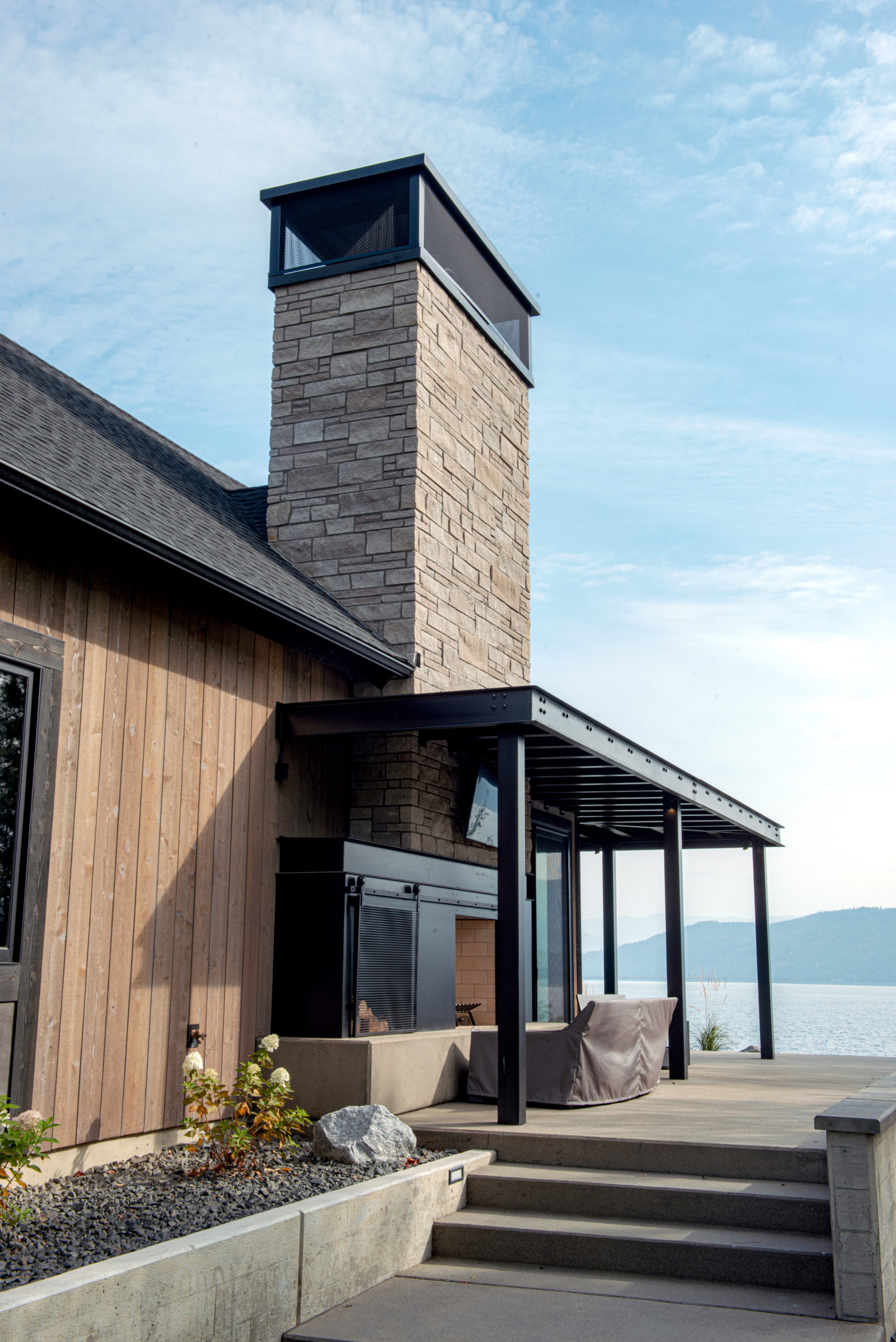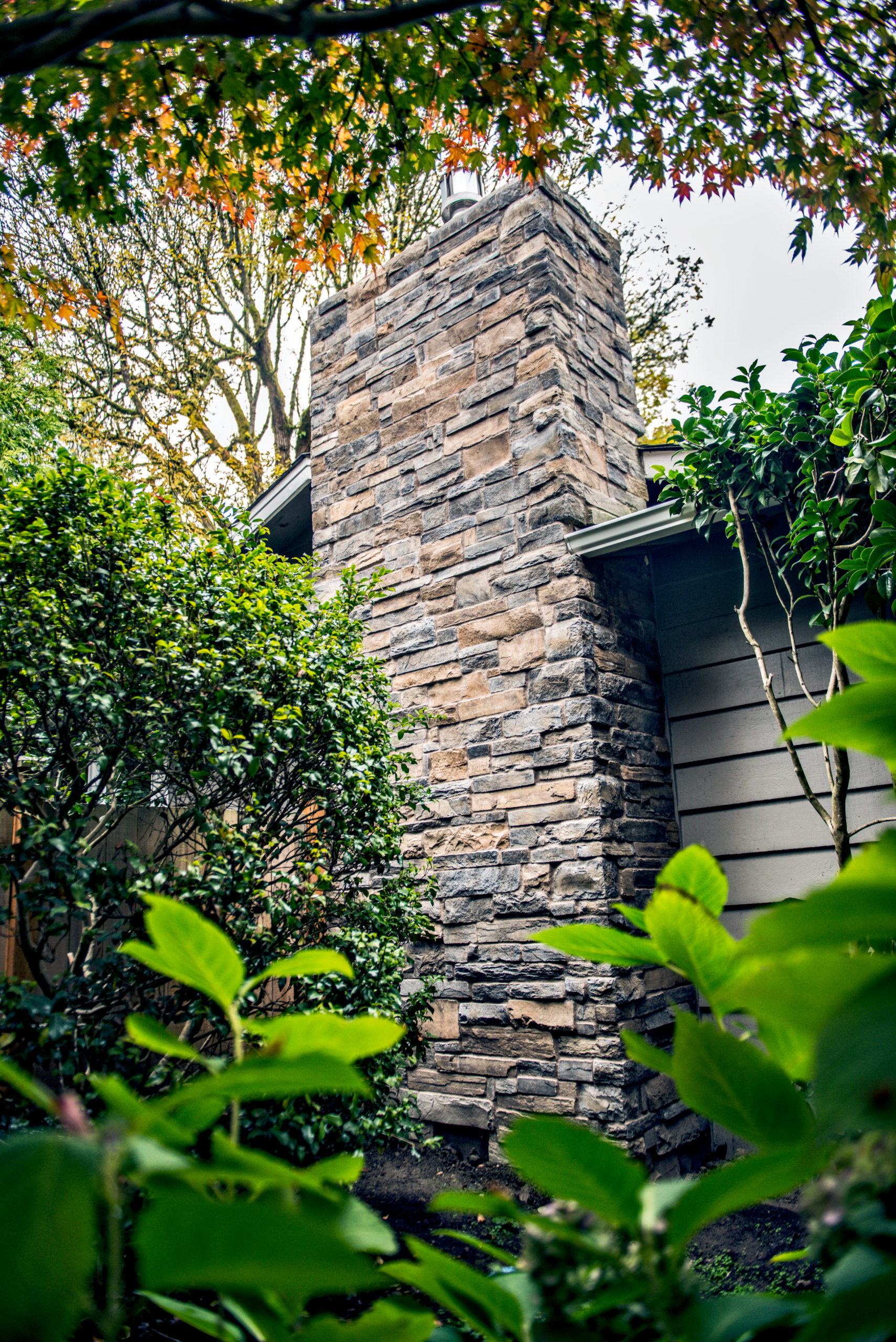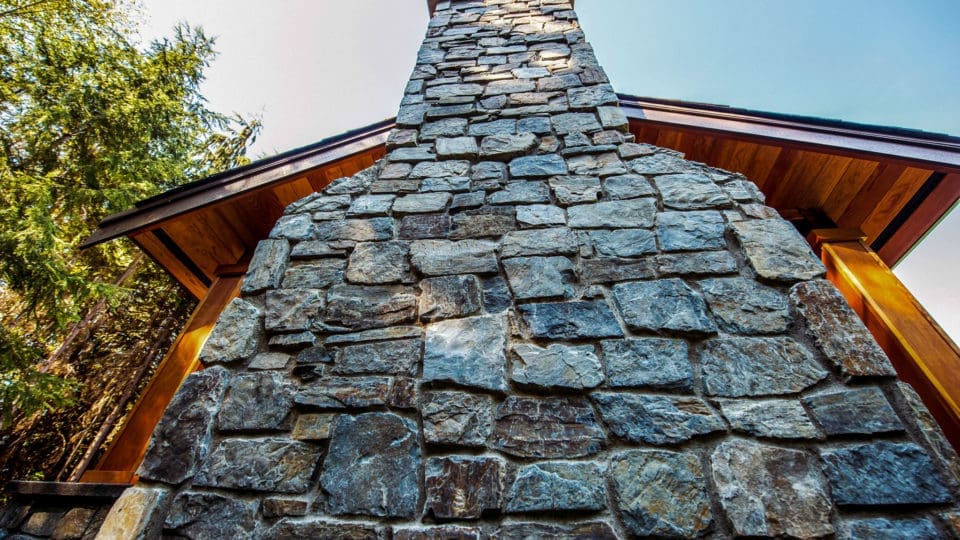A chimney’s purpose and why it is important that it works properly
Chimneys vent smoke out of the house. The products of combustion contain hazardous and noxious gasses, one of which is carbon monoxide. A clean chimney keeps these gases out and keeps you safe.

Keep Your Chimney Clean
As a homeowner, you want to make sure to keep your chimney clean and schedule a yearly chimney inspection to maintain its proper function. If your chimney has a smoke chamber or shelf, make sure it is clean and does not need parging, using a coat of mortar to smooth out the cavity, otherwise it could prevent smoke from exiting the chimney. Check the interior components of your system including the firebox and grate, and make sure it is free of any missing mortar within the joints, or other obstructions. Examine the outside and surrounding areas of your chimney, this includes crumbling brick work, vegetation, gaps, and missing bricks. Hire a professional to keep your flue clean with either a mechanical or standard cleaning method. Once the flue liner has 1/8″ of soot, otherwise it can become a fire hazard. Make sure to always clean up ash as it accumulates.
Use Properly Seasoned Firewood
Wood should be 6-12 months old so it burns cleaner and releases less combustible material in the chimney. Never burn pressure-treated or painted wood, trash, or other debris. Burn fires that consume the fuel. Burning wet wood results in improper burning, waste of money, and build up. Build up of soot, creosote, and glaze can lead to fires, smoke backflow into the house.
Keep Your Home Safe
Keep your home fire safe with a fire extinguisher and smoke/CO2 detectors, use a screen and keep your fires small. Inspect the damper to make sure its properly opens and closes. Make sure the damper is fully open before lighting a fire in the fireplace. Lighting a fire with a closed damper presents issues like smoke back flowing into the home and difficulty getting a fire started. Make sure the damper is closed when the fireplace is not in use to increase your energy efficiency by preventing air from flowing indoors. If replacing a damper, make sure it fits properly, snug with no gaps.
Preserve Chimney Integrity
Check that your chimney has waterproofing. Adding water sealant to the outside will prevent moisture from breaking down the bricks and mortar and sneaking into your home. Make sure you have a chimney crown or chimney cap to prevent water and animals from getting inside but allowing the smoke to get out. The flashing is where the chimney meets the roof and you want to ensure it is in good condition. Without a sealant going around the meeting point, moisture can seep into your home.
Tuckpointing, removing old mortar and replacing it with new, can help keep the brick or stone in place ensuring its structural integrity. If not maintained, it could lead to damaged drywall, a rusty firebox or damper, and flaking brick.

Mutual Material Products for Chimneys
Mutual sells brick, Slimbrick® and stone veneers to design your chimney and fireplace, as well as mortar and masonry sealers to preserve its structural integrity. Mutual even sells firebrick if you are looking to go the extra step to protect your fireplace and home.
External Resources
Citations
- Popular Mechanics
- Vertical Chimney
- Cultured Stone – Country Ledgestone
- Mutual Materials – Residential Brick
- Mutual Materials – Slimbrick®
- Mutual Materials – Natural Stone Thin Veneer
- Mutual Materials – Mortar
- Mutual Materials – Firebrick
- Mutual Materials – Masonry Products


